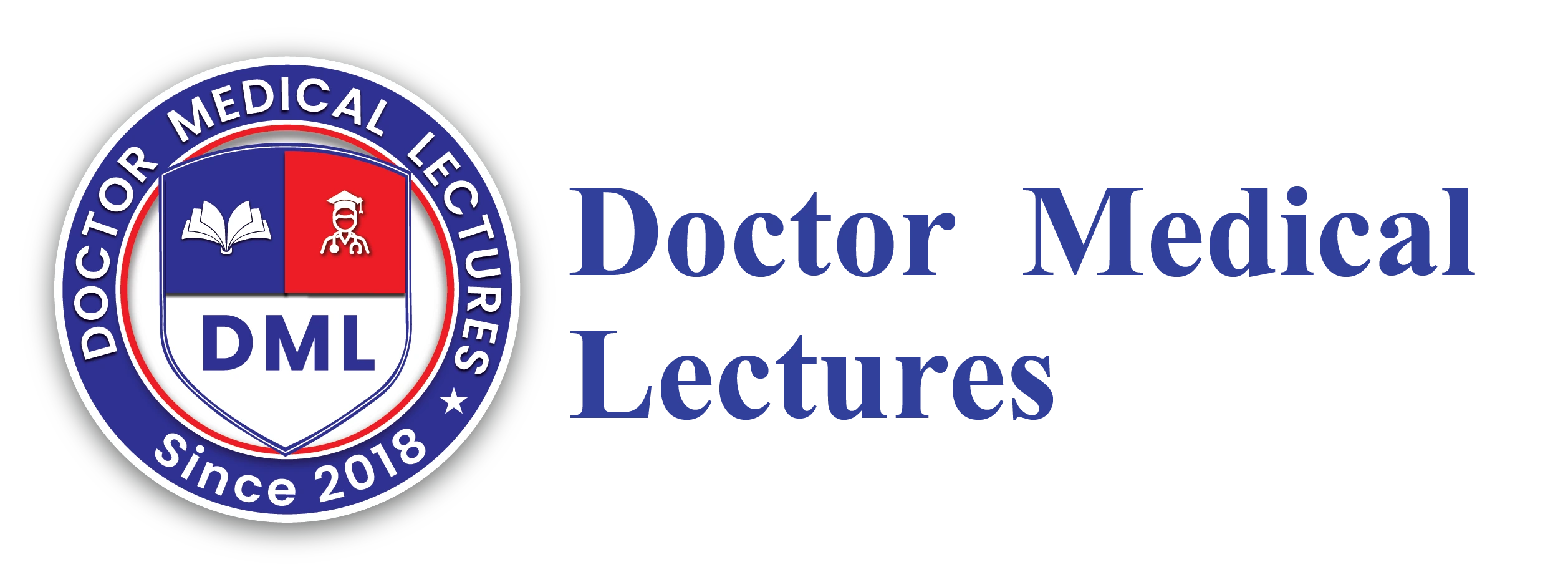Introduction
The National Registration Exam step 1 exam (NRE step 1) is an essential part of becoming a licensed medical practitioner, especially those seeking license in medicine. The test evaluates candidates’ knowledge of medial sciences, and application of medical concepts. For medical students, writing this examination is one of the most challenging and important steps toward launching their careers as medical doctors.
NRE step 1 is a decisive factor for residency and being competitive with it cannot be overestimated. Hospitals, medical institutions and other health establishments use this exam as a measure to gauge a candidate’s competence and readiness for further medical education. Achieving high scores could open doors to highly sought after residency positions and training programs while failing to pass could require extra studying and preparation to retake it again.

NRE Step 1 is an essential examination that tests both theoretical and applied knowledge. Planning requires having a good grasp of medical concepts like anatomy biochemistry physiology pathology pharmacology as well as critical thinking problem solving reasoning clinical talent to provide a complete evaluation of readiness to enter medical practice. NRE step 1 is widely recognized for its exact structure and high-quality assessment. MCQs cover an array of subjects from fundamental sciences, with block sections that test students on multiple topics at once requiring rapid memory recall of medical terms for use in various situations in medicine. Therefore, preparation is key if one wishes to score well on this examination.
Structure of NRE step 1 Exam
National Registration Examination Step 1 exam is developed for medical students at the basic of their medical knowledge in subjects like anatomy and physiology; pathology; pharmacology microbiology and behavioral science. Its format also challenges not only what you know but how best to use what you do.
Total Duration
The NRE step 1 exam takes approximately eight hours total, divided into seven 60-minute blocks. You will be asked to answer over 280 multiple choice questions (MCQs). Each block typically consists of 40 questions with one hour allocated per block to answer each one in full. Being punctual ensures sufficient time is allotted for answering each question on time in each block.
Question Types
The National Registration Examination step 1 exam features single accurate-answer multiple choice questions with medical vignettes or scenes as the context and five or more answers available, from which to choose one suitable answer that fits that context. These kinds of questions often demand extensive knowledge both of basic sciences as well as their clinical application.
Subject Breakdown:
On NRE step 1 interior Below is a breakdown of all of the major topics examined during NRE step 1.
1. Anatomy:
The National Registration Examination step 1 test covers questions on gross anatomy, embryology and neurotically. You’ll need to be familiar with organs, tissues and their connections within their structures as well as developmental abnormalities that could impact clinical practice.
2. Physiology:
NRE stage 1 tests your knowledge about human body systems and their functions under normal and pathological circumstances. To be successful on this portion of the exam, it’s crucial that you possess in-depth knowledge about renal, respiratory, cardiovascular, digestive and reproductive endocrine systems as well as reproductive and endocrine – this knowledge must be integrated seamlessly.
3. Biochemistry and Molecular Biology:
NRE Step 1 covers questions on metabolic pathways, enzyme functions and genetic disorders.An understanding of molecular biology methods used within medicine is also critical.
4. Pathology
This section of the NRE step 1 exam is often considered one of the highest yielding parts, as you must demonstrate an understanding of disease mechanisms as well as pathological changes at both cellular and tissue levels, often tested through correlation to clinical symptoms.

5. Pharmacology
On NRE step 1 you should expect to answer questions that require knowledge of drug mechanisms, their uses and interactions; side effects and interactions as well as organ system effects of various medications used to manage diseases are of utmost importance when answering such questions.
6. Microbiology
The NRE step 1 includes questions on fungi, viruses, bacteria and parasites. It is essential to have knowledge about their structures, transmission routes, cause mechanisms and treatment approaches.
7. Behavioral Sciences
The NRE step 1 exam tests your knowledge of the social, psychological and physical components of health systems such as ethics, epidemiology and bio statistics.
Timing and Breaks
The NRE step 1 structure permits scheduled breaks during an exam. After you complete each block, a 10-minute break may be taken after it. But the maximum break duration allowed per exam period is 45 minutes – should one block be finished early you may make use of extra time to take breaks if finished early enough in the day. Effective time management is vitally important here since excessive breaks could impede completion of seven blocks within a time frame.
Question Difficulty
The NRE step 1 exam is well-known for its variety of difficulty levels for each question type. While some questions require mere recall of facts, others necessitate critical thought and the application of medical expertise across multiple fields. Some NRE step 1 questions combine multiple topics into one scene that require students to apply concepts from physiology, pathology and even pharmacology in order to ascertain its cause.
Importance of High-Yield Topics
While the NRE step 1 exam covers a broad array of subjects, certain “high-yield” topics (pathology physiology and pharmacology in particular) receive extra emphasis in your preparation process for exam day. Focusing your studying efforts on these high-yield subjects will significantly enhance your score on NRE step 1 exam day.
Adaptive Nature of the Exam
The NRE step 1 test does not follow an adaptive model; thus all test takers receive an identical list of questions from random selection, rather than receiving their exam in accordance with content they’re testing on. Each student receives different combinations from this pool of questions which allows them to experience identical exams despite taking tests that test similar topics.
Performance Analysis
After taking NRE step 1, your performance will be evaluated based on how many correct answers were submitted; each correct answer added to your score and then compared against an established threshold for passing which changes each year but consistently evaluates your skills needed for passing NRE step 1 exam.
Training Strategies for NRE step 1
Planning is key when it comes to taking and passing the National Register Examination step 1 exam (NRE step 1). Below are a few effective strategies designed to help ensure your NRE step 1 preparation goes as smoothly as possible.
-
Create a Study Schedule:
Establish a schedule to cover each subject that will appear on the NRE step 1 examination.

-
Utilize Practice Questions:
MCQs provide an effective way to simulate exam conditions. Utilize them regularly as part of your practice exam preparation regimen and to experience what an actual examination would feel like.
-
Pay Attention to Weak Areas:
Find your weaknesses and work to address them as much as possible.
-
Review High-Yield Topics:
NRE step 1 emphasizes pathology, pharmacology and the physiology of its subjects when testing high yield topics such as pathology, pharmacology and physiology.
-
Join Study Groups:
Engaging with peers who are studying difficult topics can be invaluable in increasing understanding.

High-Yield Subjects for NRE step 1:
Certain subjects have long been recognized for being frequently featured on the National Registration Examination-step 1. Here is a list of such high-yield subjects to focus on when studying for this exam:
-
Pathology:
Learn about the causes and symptoms of diseases to gain insight into health concerns.
-
Pharmacology:
Expand your knowledge about drug interactions, actions and potential negative side effects.
-
Anatomy:
Discover the inner workings of the body’s anatomy, such as organs, tissues, and systems.
-
Physiology:
Gain insight into how your body operates and functions, such as respiratory, cardiovascular and kidney systems.
Study Resources for NRE step 1:
In order to successfully pass the NRE step 1 exam, various study materials will be needed. Some popular options are:
-
Textbooks:
When devising a study strategy for NRE step 1 examinations, having comprehensive resources such as “First Aid for the NRE step 1 Exams” is of vital importance.
-
Online Question Banks:
For NRE step 1 Examinations are highly beneficial.
-
Flashcards:
Use apps like Akin to help you memorize key concepts more efficiently.
-
Lectures and Video Resources:
Online platforms like YouTube as well as subscription-based services provide extensive lectures on complex subjects.

Common Mistakes to Avoid in NRE step 1 Training
Many students make similar errors when training for NRE step 1 exams, so to increase your chance of success it is wise to avoid repeating these errors:
-
Neglect of Practice Exam:
For a successful examination routine paractice is very necessary neglect of routine practice make you feel less foucusing.
-
Don’t procrastinate on studying:
Don’t leave your work until the last minute to tackle; get going early for optimal retention of knowledge.
-
Ignoring Weak Subjects:
Instead of Focusing on Strengths, Make an effort to enhance weak points.
Time Management in NRE step 1 During an Exam
Time management is crucial because of the volume of questions, and the time constraints on the day. Develop your speed by starting with easy questions and then moving on to the harder ones otherwise you will run out of time and limiting your abilities. Taking any practice tests would also be useful in refining this set of skills.
Health of the Mind and Body During Training
Chapter 1) I am a paragraph paraphraserHow to prepare for NRE step 1 It is important to work out, eat right and get enough sleep while studying for the NRE step 1. Try to maintain overall health by maintaining a regular exercise routine based on flexibility, aerobic exercise and yoga as well as breaks every so often in training sessions, A February 18 birthday is an Aquarius who will find that meditation or relaxation techniques can pace the daily rush of life for them in order to not burn out.
Final Thoughts
Getting Through the NRE Step1 Exam Passing the National Registration Examination step 1 (NRE step 1) examination for sure demands time, a good studying game plan and positive outlook. How to pass the GMAT By working through sample questions with a study partner and maximizing your time, you can turn this difficult exam into a breeze! And remember, preparation is the key and success on passing NRE step 1 is in reach if you employ well-established techniques and tips for passing.
Conclusion:
Understanding the NRE step 1 exam’s structure is an integral component of your preparation strategy. Knowing its subject matter, time duration and types of questions will allow you to plan your time effectively during testing day. Focusing on topics with high marks yielding and practicing MCQs can help medical students tackle it confidently and with clarity – passing this exam becomes a realistic goal with proper preparation and knowledge of its structure.
Frequently Asked Question:
Question 1 : What Is NRE step 1?
This exam aims to assess medical students in terms of their knowledge in fundamental medical sciences such as anatomy, biochemistry and pathology. Passing this examination is required in order to advance in your medical education and training career; although many students find the exam challenging; with proper approach it can be passed easily.
Question 2 : Why Is NRE step 1 Crucial?
NRE step 1 holds great significance for medical students as an examination of both knowledge and problem solving talent, which will ultimately have an effect on residency placement and job prospects. By being well prepared, taking part in NRE step 1 exams could open doors to top medical schools as well as serve as a springboard into lucrative medical careers.
Question 3. What resources would be beneficial in NRE step 1 preparation?
Popular preparation sources are First Aid to prepare for USMLE Step 1, U World, and Kaplan.
Question 4. What topics will NRE step 1 covered?
NRE covers all subjects which are relevent to medical such as Anatomy, Physiology, Biochemistry and other related subjects.
Question 5. Who Should Take NRE step 1?
Medical students and graduates looking to put their basic science knowledge through its paces want to put it through its paces.

